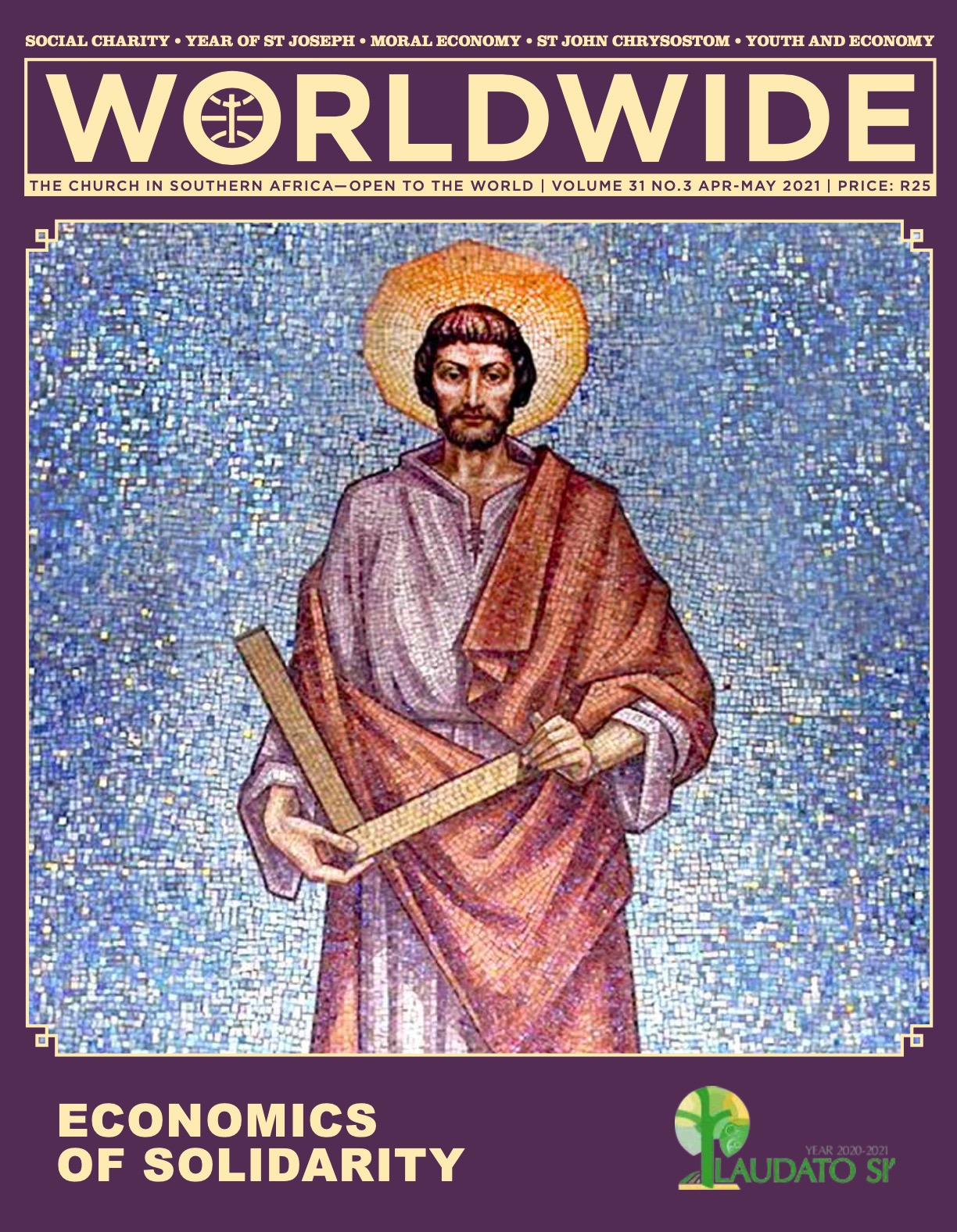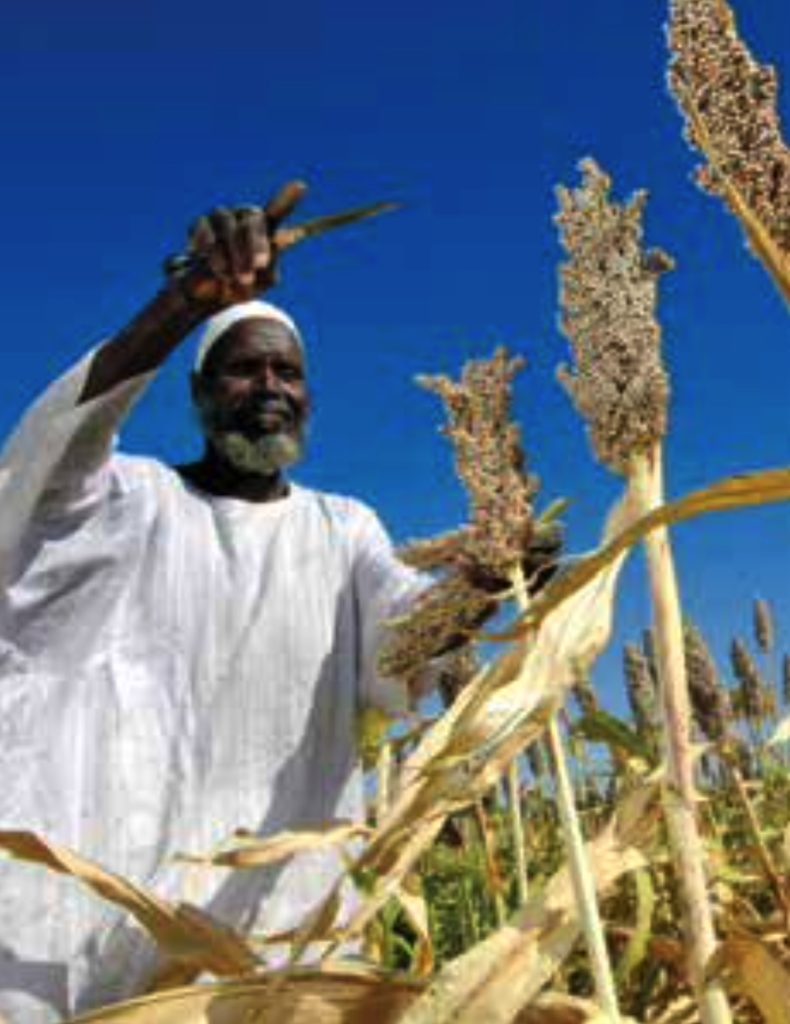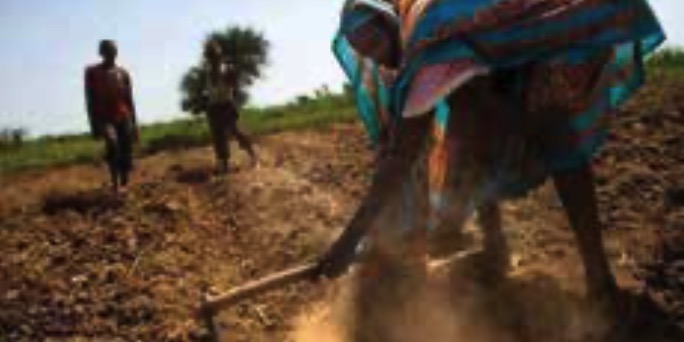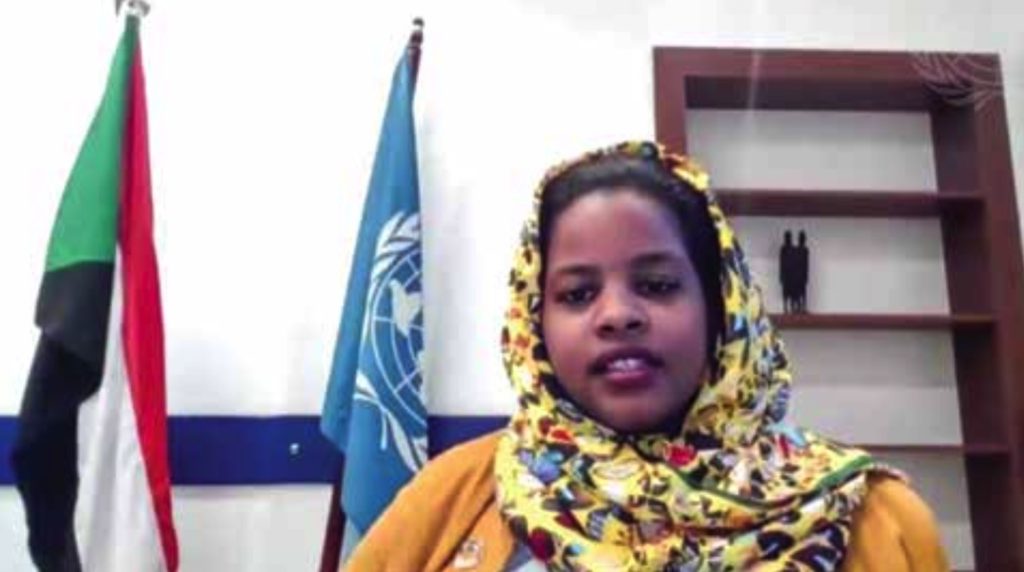
St Joseph and The Dignity of Human Work
We are celebrating the Year of St Joseph. He is, for us Christians, an example of honesty and fidelity, a model of the father figure in the family. He is the humble and firm man who sustained the Holy Family through very difficult situations. This mosaic, portraying him as a carpenter, reminds us of the dignity of human labour. Through work, we become collaborators in the building of society, contributing to it with our various talents. Job creation and sharing of opportunities need to become part and parcel of a new economics of solidarity. Social charity, sustainability and respect for the environment will be integral elements of that model that aims at respecting the dignity of every person.
RADAR

Photo: Fred Noy/ UN.
The Global Insecurity of Climate Change
On the 23 February, the United Nations Security Council (UNSC) organised a debate on international peace and security and climate change, chaired by Boris Johnson, United Kingdom Prime Minister. This country, currently holder of the Security Council (SC) presidency, will also host the 26th UN Climate Change Conference of the Parties (COP26), in November, in Glasgow, Scotland.
Among the participants, David Attenborough, British natural historian and popular wildlife broadcaster, affirmed that “the rising global temperatures, the despoiling of the ocean — that vast universal larder which people everywhere depend for their food — the change in the pattern of weather worldwide can turn forests into deserts, drown great cities and lead to the extermination of huge numbers of the other creatures with which we share this planet”, unless we react soon. “If we continue on our current path, we will face the collapse of everything that gives us our security: food production, access to fresh water, habit- able ambient temperature and ocean food chains,” he added.
UN Secretary-General António Guterres singled out the last decade as the hottest in human history when wildfires, cyclones and floods were the new norm which affected political, economic and social stability. “Climate disruption is a crisis amplifier and multiplier, dries up rivers, reduces harvests, destroys critical infrastructure, displaces communities and it exacerbates the risks of instability and conflict.” He referred to a study of the Stockholm International Peace Research Institute that affirmed that 8 of the 10 countries hosting the largest multilateral peace operations in 2018 were in areas highly exposed to climate change. Guterres sees 2021 as a critical year, not only for curbing the rapidly spreading COVID-19 pandemic, but also for meeting the climate challenge targets. “UN will focus this year on building a global coalition for carbon neutrality by 2050”, he said.
Alongside the SC debate, the 5th session of the UN Environment Assembly, attended by government leaders, businesses, civil society and environmental activists, took place on the theme “Strengthening actions for Nature to achieve the sustainable development goals”. Joyce Msuya, Deputy Executive Director for the UN Environment Programme (UNEP), commented that the health of Nature and humanity were inextricably linked and the crisis in Nature was linked with the climate and pollution crisis.

including droughts, desertification, land degradation and food shortages.
Photo: Albert Gonzalez Farran/ UNAMID/ CC BY-NC-ND 2.0.
“For our own wellbeing we must make peace with Nature in a way that demonstrates solidarity,” she said referring to a UNEP report that tackles the triple emergencies of climate, biodiversity loss and pollution and provides detailed solutions by drawing on global assessments. Msuya added that the world now had the chance to put in place a green recovery “that will heal our planet”, on a path to a low-carbon, resilient, post-pandemic world.
CLIMATE CHANGE AND INSECURITY IN SUDAN
“We are living in a continuous insecurity due to many factors that puts Sudan on top of the list when it comes to climate vulnerability. This vulnerability is also directly linked to insecurity within the country,” said Nisreen Elsaim, Sudanese climate activist and chair of United Nations (UN) Secretary General’s Youth Advisory Group on Climate Change, a participant in the Security Council (SC) debate.
Already in 2018, the SC stated in a resolution, that “the adverse effects of climate change, ecological changes and natural disasters, among other factors, including droughts, desertification, land degradation and food insecurity” influenced the situation of conflict in Darfur, Sudan”, added Elsaim.

addresses the videoconference on maintenance of international peace and security with
Security Council members, 23 February 2021.
Photo: Eskinder Debebe/ UN
The United States Agency for International Development ranks Sudan as one of the world’s most vulnerable countries when it comes to climate change. Increased frequency of droughts and high rainfall variability over decades has stressed Sudan’s rainfed agriculture and pastoralist livelihoods, which are the dominant means of living in rural areas such as north Darfur.
“In a situation of resources degradation, hunger, poverty and uncontrolled climate migration, conflict is an inevitable result,” said Elsaim. “Climate-related emergencies result in major disruptions to healthcare, livelihoods and migration, increasing also the risk of gender-based violence. Women, youth and children are the groups most adversely affected by climate insecurity.”
In January, inter-communal violence in Darfur displaced over 180 000 people, 60% under the age of 18. “Displacement has declined in recent years in Sudan, but many of its triggers remain unaddressed. Ethnic disputes between herders and farmers over scarce resources overlap with disasters such as flooding and political instability,” according to the Internal Displacement Monitoring Centre. There are currently 2.1 million internally displaced persons in Sudan.
“Land and resources in Africa, and in many parts of the world, can no longer maintain young people, because of climate change,” said Elsaim. “In the youth’s search for decent lives, jobs and proper access to services, within the new challenge of COVID-19, the only solution for many is cross-border or international migration. The issue is a global one. World leaders need to engage with the youth and listen to them. Stop conflict by stopping climate change. Give us security and secure our future,” Elsaim said.
(Nalisha Adams, www.ipsnews.net)
| Dates To Remember |
|
April 1 – Holy Thursday; 2 – Good Friday; World Autism Awareness Day; 3 – Holy Saturday/Easter Vigil; 4 – Easter Sunday; International Day for Mine Awareness and Assistance in Mine Action; 6 – International Day of Sport for Development and Peace; 7 – International Day of Reflection on the 1994 Genocide in Rwanda; World Health Day; 11 – Divine Mercy Sunday; 21 – World Creativity and Innovation Day; 22 – International Mother Earth Day; 25 – World Malaria Day; 28 – World Day for Safety and Health at Work; 30 – Our Lady, Mother of Africa May 1 – St Joseph the worker; Workers Day; 3 – World Press Freedom Day; 8 – Remembrance and Reconciliation for the Victims of the Second World War; 15 – International Day of Families; 16 – Ascension of the Lord; World Communications Day; 20 – World Bee Day; 22 – International Day for Biological Diversity; 23 – Pentecost Sunday; 24 – Closure of Special Laudato Si’ Anniversary Year; 29 – International Day of UN Peacekeepers; 30 – World No-Tobacco Day |
